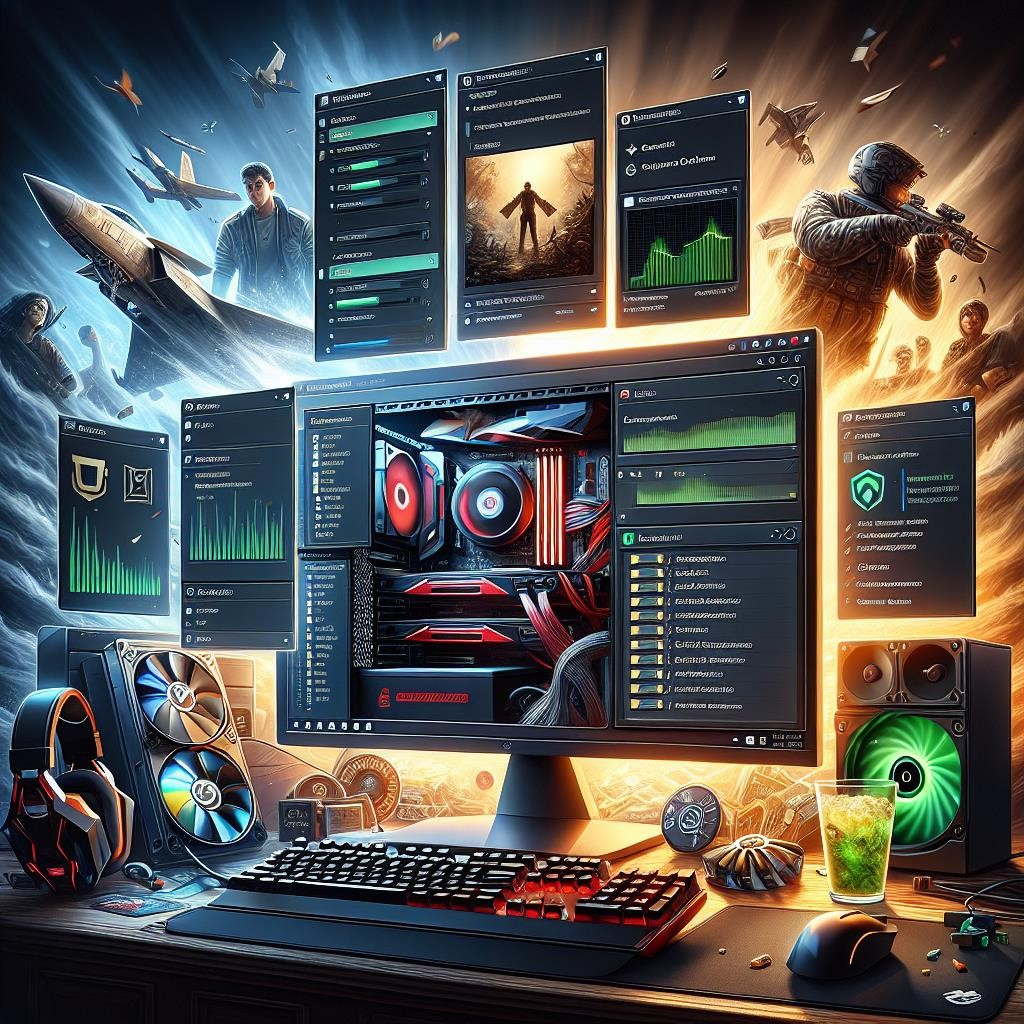In the ever-evolving world of gaming, having a powerful PC that runs games smoothly can make a significant difference to your overall experience․ Whether you play competitive shooters or expansive RPGs, optimizing your PC is crucial․ In this article, we will explore various strategies to enhance your gaming performance effectively․
1․ Update Your Drivers
One of the first steps in optimizing your PC for gaming is ensuring that your graphics drivers are up to date․ Manufacturers like NVIDIA and AMD regularly release updates that enhance performance and fix bugs․
- Visit the manufacturer’s website or use dedicated software to check for updates․
- Install the latest graphics driver․
2․ Adjust Game Settings
Most games come with several settings that can be adjusted to improve performance․ Here’s how:
- Lower the resolution and graphics quality settings․
- Turn off V-Sync if you’re experiencing input lag․
- Disable unnecessary effects like motion blur and shadows․
3․ Overclock Your Hardware
If you’re feeling adventurous, overclocking your CPU and GPU can yield significant performance gains․ However, this should be done with caution as it can lead to overheating․
- Use reliable software to monitor temperatures while overclocking․
- Gradually increase clock speeds and stress test your hardware․
4․ Optimize Your System Settings
Adjusting your system settings can also help in maximizing gaming performance:
- Disable unnecessary startup programs to free up system resources․
- Adjust power settings to “High Performance․”
- Consider disabling Windows visual effects․
5․ Clean Up Your Hard Drive
Regular maintenance of your hard drive is essential for optimal performance․ Here’s what you can do:
- Uninstall games and programs you no longer use․
- Run disk cleanup utilities to remove temporary files․
- Defragment your hard drive if you’re using an HDD․
6․ Upgrade Your Hardware
Sometimes the best way to improve gaming performance is to upgrade your hardware․ Here are some components worth considering:
- RAM: Increasing your RAM can help with multitasking and improve game loading times․
- SSD: Switching to an SSD from an HDD can drastically reduce load times․
- Graphics Card: A new GPU can significantly boost your gaming performance․
7․ Monitor Temperature and Performance
Keeping an eye on the temperature of your components is crucial․ High temperatures can throttle performance, so consider:
- Using monitoring software to track temperatures․
- Ensuring proper airflow in your case․
- Cleaning dust from fans and heatsinks․
8․ Utilize Game Mode in Windows
Windows 10 and 11 come with a feature called Game Mode that optimizes system resources for gaming:
- Turn on Game Mode in the Settings under Gaming․
- Ensure background applications are limited while gaming․
9․ Network Optimization
A stable internet connection is vital for online gaming․ Here are some tips:
- Use a wired connection instead of Wi-Fi whenever possible․
- Close bandwidth-heavy applications while gaming․
- Consider upgrading your router for better performance․
By following these strategies, you can significantly optimize your PC for maximum gaming performance․ Whether you are a casual gamer or a hardcore enthusiast, ensuring that your hardware and software are in top shape can lead to an enhanced gaming experience․ Remember, a well-optimized PC not only improves performance but also prolongs the lifespan of your hardware․ Happy gaming!
